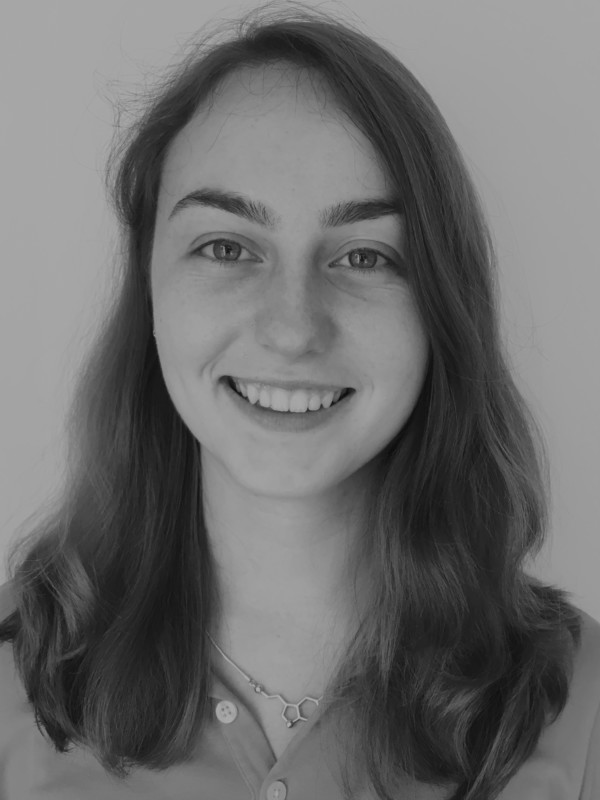BRC Cancer PhD student wins best paper at international health informatics conference
Charlotte Watson, PhD student for the NIHR Manchester Biomedical Research Centre’s Cancer Prevention and Early Detection (PED) theme, was recently awarded best student paper at an international health informatics conference.
The paper, ‘Do traditional BMI categories capture future obesity? A comparison with trajectories of BMI and incidence of cancer,’ was chosen from over 71 submissions at the American Medical Informatics Association (AMIA) virtual conference in November.
The BRC’s Cancer PED theme aims to reduce the burden of common cancers, through developing effective screening strategies and treatments to prevent the disease developing.
Charlotte’s research looked at the link between body mass index (BMI) and obesity related cancers, and how a person’s risk can differ to another’s depending on when and how fast they gain weight over their lifetime.
Speaking on the award, she said:

“Even though it had to shift online this year, it was a real privilege to present my work at the AMIA conference and to so many highly esteemed academics who conduct cutting edge research in the health field.
There were so many strong research papers from other students, and I was thrilled to make it to the final eight shortlisted, let alone to have won best student paper. It really is a big honour, and something I’m massively proud of as my PhD comes to an end.
BMI looks at a person’s height and weight to determine if they are a healthy weight. A high BMI – meaning a person is overweight or obese – is linked to an increased risk of developing 13 different cancers, including breast, bowel and stomach cancer, among others.
For her project, Charlotte looked at BMI data for almost 500,000 Americans gathered between 1995 and 2005, and whether they developed an obesity-related cancer. Using a computer algorithm, she derived several distinct groups based on their pattern of weight gain throughout their lifetime and how this weight change impacted their risk of an obesity related cancer. These ranged from people who maintained a healthy weight, were first recorded as overweight but lost weight, and those who consistently gained weight.
Charlotte added: “Using algorithms and machine learning allows you to interrogate large amounts of complex data much quicker than humans could manage, as well as spot hidden trends and relationships between different data and characteristics.
“Normally studies using BMI as a risk predictor only use a single measure, meaning BMI is only recorded once for that person and used to estimate how body fatness affects cancer risk. However, I was able to use data with multiple measures, which allowed us to identify distinct groups showing how risk changed depending how people lost or gained weight over time.
“The results showed that people who had consistently gained weight or had been overweight or obese for longer were the most likely to develop cancer. However, it also showed people who had rapidly lost or gained weight, meaning one of their BMI scores was very different from the last, were still at higher risk, which is something studies that use a single BMI measure would miss.
Although more research is needed to be able to apply the findings to a whole population, this could still help public health professionals to identify exactly which kinds of people would benefit the most from treatment and support around diet and exercise.

Dr Nophar Geifman, Senior Lecturer in Biomedical Data Analysis and Modelling at The University of Manchester, was a co-author of the paper and has supported several other BRC projects. She added:
“Through our Informatics and Data Sciences cross-cutting theme, Manchester BRC supports informatics research to help personalise and improve the effectiveness of care and treatments.
“This award is a fantastic achievement for Charlotte and a real positive as she finishes her PhD. We hope the results from the complex analysis of this very large dataset will help improve understanding of the influence of BMI and weight gain on cancer risk and help tailor useful interventions.”
Alongside finalising her PhD, between July and September 2020 Charlotte also undertook an industry internship with Spectra Analytics, who specialise in using data science and artificial intelligence to support healthcare organisations and other sectors.
During her time there she worked on coding and app development on several projects. One crucial collaboration with The University of Manchester was on the PROFID project, to predict who was most likely to suffer sudden cardiac death after myocardial infarction. Subsequently she has been offered a permanent job with the company, starting in February 2021.